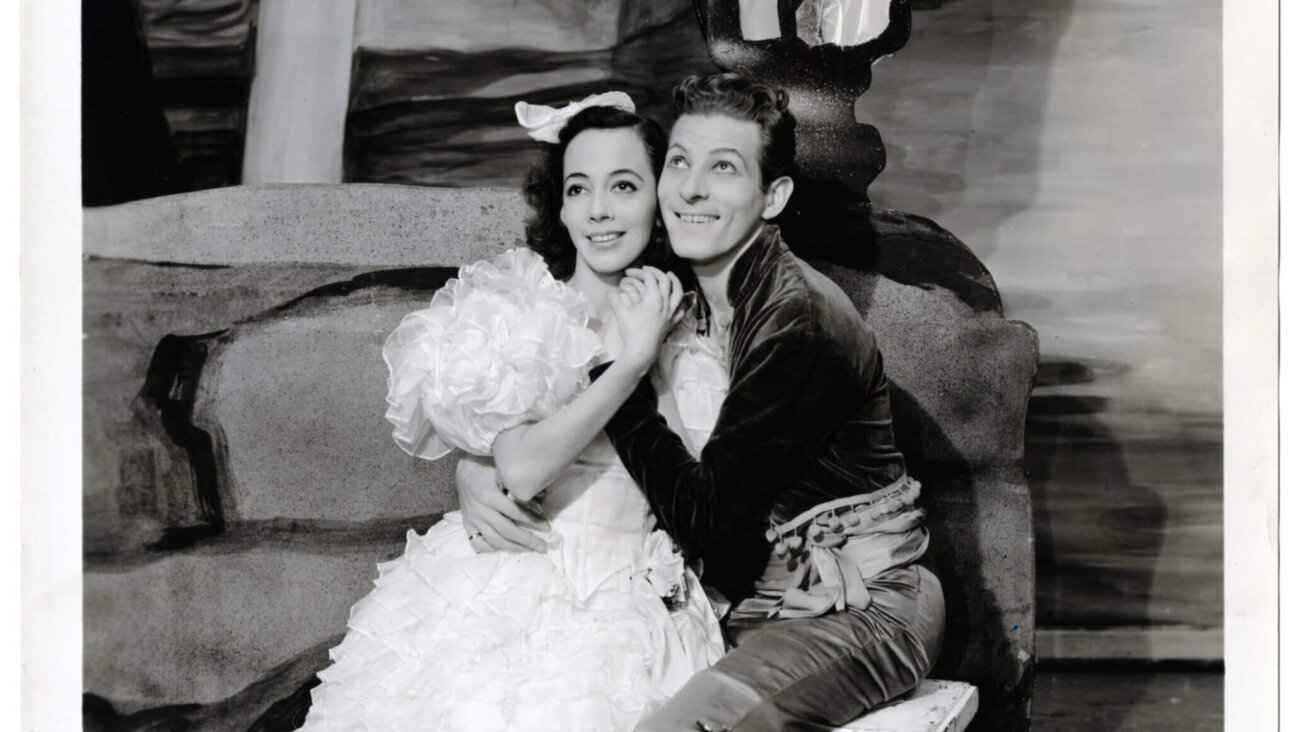Beyond Bubbeleh: Reading Real Yiddish
These days, books about Yiddish have been hamming it up for the mainstreamers. A slew of new books have arrived to decode the cultural essence of the language of Ashkenazic Jewry for an audience of non-Jews and Jews (both of whom appear equally innocent of Yiddish these days). “Yiddish With Dick and Jane” is only the most ingenious and successful example of this trend, schlepping itself up the New York Times bestseller list, but all the new decipherers of Yiddish tend to boil it down to a few translatable words (zaftig, shtetl, bubbe), a wheezy accent, and an arsenal of curses and jokes softened by their evocation of the wrinkled individuals who originally enunciated them. These books trade in nostalgia, gesture at the impossibility of cultural recuperation and, perhaps most pointedly, say more about their audience — what Americans need Yiddish to be about in contemporary parlance — than they do about the actual language.
Once upon a time, though, Yiddish was a language with great range. It could do funny, sure, but it also could pull off happiness, romance, immeasurable shades of temper. Few readers of “Yiddish With Dick and Jane” will ever come to know that the Yiddish language spawned sophisticated literature for centuries, and that by the mid 19th century a number of its authors instilled the literature with a modern sense of definition, national identity and literary standards.
The best known of these pioneers were Sholem Yankev Abramovitsh (1853-1917), Sholem Rabinovitsch (better known as Sholom Aleichem, 1859-1916) and Yitzhak Leib Peretz (1851- 1915), a trio of writers who put a literature still unsure of its footing on a path toward great literary ambition. A new anthology edited by Ken Frieden, professor of Judaic studies at Syracuse University, delivers an array of the work of the dray klasikers (the three classic authors), translated with admirable sensitivity to the language’s dazzling power. Most welcome are three biographical sketches of the three authors whose personal experiences reflected tectonic shifts in the lives of their primary readers and the celebrity that so profoundly affected them and those close to them. The book’s selection of texts, while peculiar, prods its readers into a literary world in which Yiddish comfortably belonged, and shows how much may be found (and, on occasion, lost) in translation.
The first section focuses on Abramovitsh, dubbed the zeyde of Yiddish literature, and includes “The Little Man,” a picaresque novel published in 1864 in the Russian Empire. Although stiff with the exposition of its lessons, “The Little Man” marks the first appearance of the well-rounded, tzitzit-clad Mendele the Traveling Book Peddler, Abramovitsh’s nom de plume and sharp-eyed narrator. Mendele reappears in one of the author’s masterpieces, “Fishke, the Lame: A Story of Poor Jewish Folks.” Frieden chooses the earliest and most abbreviated version of the story, but even here we see an evolved writer. Though the story has its moments of melodrama, Abramovitsh relaxed his agenda of Jewish Enlightenment to integrate a diversity of themes into his writing. Through its braided plot line, for instance, the young author turns frequently to the topic of marriage, love and sexuality — from the botched shidukh that Mendele’s friend, Alter, tries to arrange between the families of two boys (whoops!), to the wholesome love abloom in Fishke for his pure-hearted, hunchbacked fellow beggar, who was abandoned as a young girl.
Moreover, the characters swap these stories in the sun-baked countryside that coaxes the men out of their coats and onto a grassy field, where they lie down curiously close to one another. Beyond shtetl limits, Jewish men commune freely with nature and indulge their desire for male intimacy and the unadulterated pleasures of conversation, a smoke and a shvits. Many of the elements that make “Fishke” one of Abramovitsh’s best works are remarkably present in this, its first version.
Idiosyncratic is the only way to describe the selections in the book’s second part, devoted to Sholom Aleichem. Although Sholom Aleichem wrote masterfully across a number of prose genres, Frieden concentrates on his monologues and on two chapters from “Tevye the Dairyman,” though they had been ably translated before (recently and admirably by Hillel Halkin in 1998). Sholom Aleichem wrote his monologues between 1901 and 1910 and, though they are not my favorite of the author’s oeuvre, each is a craftily wrought magic trick, the unending prismatic scarf drawn from the magician’s sleeve. Without reaching the scope of a full-blown short story, Sholom Aleichem’s monologues begin simply with a speaker and his tale, gradually dilating in meaning and psychology and ultimately giving way to satisfying little worlds.
In one such monologue, a Vilna housewife remembers the day she had cooked her holiday tsimmes in the morning in order to visit her paralyzed sister and return in time to feed her husband. The rub is that she leaves the tsimmes on the stove in a sukkah that is shared by all the poor residents who live along the same courtyard. The monologue continues, gradually interlocking its drama (her tsimmes vanishes!) with its occasion that the housewife had unceremoniously announced at the beginning: the stupidity of the young generation who hanker naively for a socialist utopia.
Of all the texts included in the anthology, the monologues are the knottiest to translate, since Sholom Aleichem echoes the colloquial Yiddish of a character’s given class or region. By and large the translator acquits himself admirably. Sometimes, however, the ethnic flavor is translated out of the text. For instance, the Vilna housewife holds forth about her cherished yontefdiker tsimes, translated here as “holiday dainties.” “Holiday” is fine for yontef, but tsimes, the carrot-based delicacy served on the Sabbath and especially on holidays surrounding Rosh Hashanah is, well, tsimes (tsimmes). Without waxing poetic, tsimes transcends
linguistic borders, and not only according to my grandmother. I am tempted not to make a tsimes of this issue (no explanation necessary, I hope), but overzealous translations recur here. In a translation of Yiddish literature, let’s allow Sukkes (or Sukkot, in Hebrew) to be Sukkes and not the “Feast of Tabernacles,” as it is here rendered. (Ditto on sukkah, the actual booth in which one sits.) Let tzitzit remain as such (it is so found in Merriam Webster) and not as “tassle,” with its flaccid signifying power.
Finally, to Peretz. Frieden selects pieces exclusively from the author’s neo-Hasidic stories, such familiar favorites as “If Not Higher” (and not, for instance, his modernist dramas that I itch to see in translated anthologies). Still, Frieden’s renderings capture nicely the velvety voices of their narrators, the mystical visions of the rebbes and the author’s twinkle-eyed perception of human nature. I was newly enthralled by the narrator in “Between Two Mountains,” who takes a midnight coach ride through a raging storm to be the messenger between the Lithuanian misnagdic (anti-Hasidic) Rabbi of Brisk and his former student, who abandoned him to become a Hasid in order to save the life of a woman in the throes of deadly labor.
Though satisfying in the main, Frieden’s anthology might have benefited from a more substantial introduction, one that made sense of his idiosyncratic choice of texts. My guess is that Frieden expects this anthology to be hitched to his introductory study of the three writers (“Classic Yiddish Fiction”). Fair enough. But I favor the learned introductions of translator Hillel Halkin and the collections of Joachim Neugroschel — including, most recently, “No Star Is Too Beautiful” — which offer a landslide of authors, demonstrating the true bounty that is Yiddish literature.
To be sure, Frieden’s collection will not be pulled off the shelf as often as some Yiddishy concoctions on which the general public is happy to nosh. But if Dick and Jane were to crack open this translation of Yiddish literature, they might learn abundantly more about Yiddish in English than a few Yiddish words might convey. But you know how it is; talking to Dick and Jane is vi redn tsu der vant.

I hope you appreciated this article. Before you go, I’d like to ask you to please support the Forward’s award-winning journalism this Passover.
In this age of misinformation, our work is needed like never before. We report on the news that matters most to American Jews, driven by truth, not ideology.
At a time when newsrooms are closing or cutting back, the Forward has removed its paywall. That means for the first time in our 126-year history, Forward journalism is free to everyone, everywhere. With an ongoing war, rising antisemitism, and a flood of disinformation that may affect the upcoming election, we believe that free and open access to Jewish journalism is imperative.
Readers like you make it all possible. Right now, we’re in the middle of our Passover Pledge Drive and we need 500 people to step up and make a gift to sustain our trustworthy, independent journalism.
Make a gift of any size and become a Forward member today. You’ll support our mission to tell the American Jewish story fully and fairly.
— Rachel Fishman Feddersen, Publisher and CEO
Join our mission to tell the Jewish story fully and fairly.
Our Goal: 500 gifts during our Passover Pledge Drive!























